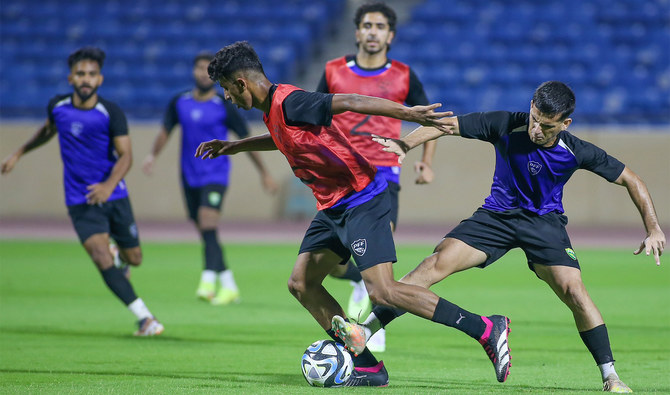TOKYO: Japan, Australia and Jurgen Klinsmann’s South Korea will launch their qualifying campaigns on Thursday for the 2026 World Cup, with Palestine also among the 36 teams in action in Asia.
A record eight direct spots and one intercontinental playoff berth are up for grabs for Asian Football Confederation sides at the expanded World Cup in the United States, Canada and Mexico.
Nine groups of four in the AFC will play each other home and away, with the top two from each going through to the final qualifying round.
Japan will be expected to book their place at an eighth straight World Cup after a phenomenal run of form since last year’s tournament in Qatar, where they reached the last 16.
The Blue Samurai have won their last six games, plundering 24 goals and conceding just five along the way.
They traveled to Europe in September and beat Germany 4-1 and Turkiye 4-2 — results which cost both opposing managers their jobs.
Hajjime Moriyasu, whose side kick off their campaign against Myanmar in Osaka, warned that a Group B also featuring Syria and North Korea would not be easy.
“They are teams that wouldn’t look out of place in the final round,” the coach said, despite Japan thrashing Myanmar 10-0 at home when they met in 2022 World Cup qualifying.
“We can’t afford to slack off and we need to keep striving to be better,” he added.
South Korea initially struggled when German legend Klinsmann took over as coach in February, but results have picked up in recent games.
The Koreans scored 11 goals without reply in friendly wins over Saudi Arabia, Tunisia and Vietnam, and begin their qualifying campaign at home to Singapore.
China and Thailand have also been drawn in what looks like being one of the toughest groups of the qualifiers.
“We will be very serious with every World Cup qualifying game,” said Klinsmann, who was without a win in his first five games in charge.
“Getting points right away is very important.”
Australia, who joined Japan and South Korea in reaching the World Cup last 16 in Qatar, being their campaign against Bangladesh in Melbourne.
Coach Graham Arnold told reporters that the time for “experimenting is over,” with the Asian Cup in Qatar also just two months away.
“Now it’s all about getting the tactics right and getting the players on the pitch and their performance right, and winning those games at all costs,” he said.
The Socceroos have also been drawn alongside Lebanon and Palestine in Group I.
Palestine are away to Lebanon in their opener but the conflict between Israel and Hamas means they will play their home game against Australia on neutral ground in Kuwait next week.
The first match day this week will be followed by the second on November 21 in Asia.
This Thursday Iran are at home to Hong Kong while Saudi Arabia, who pulled off a stunning win over eventual champions Argentina at the Qatar World Cup, host Pakistan.
Pakistan beat Cambodia in the preliminary round for their first-ever qualifying win.
Qatar, now under the guidance of former Iran coach Carlos Queiroz, are at home to Afghanistan.
Eighteen of Afghanistan’s players are reportedly set to boycott the match in protest at what they describe as poor treatment by their country’s football association.
North Korea play their first World Cup qualifier since 2019 when they face Syria on neutral ground in Saudi Arabia.
The North Koreans withdrew midway through 2022 qualifying when the Covid pandemic struck.
















